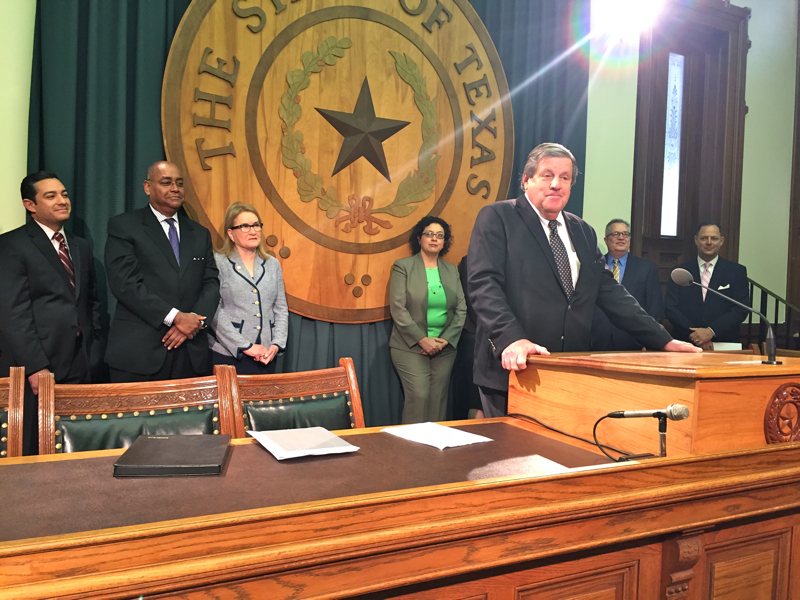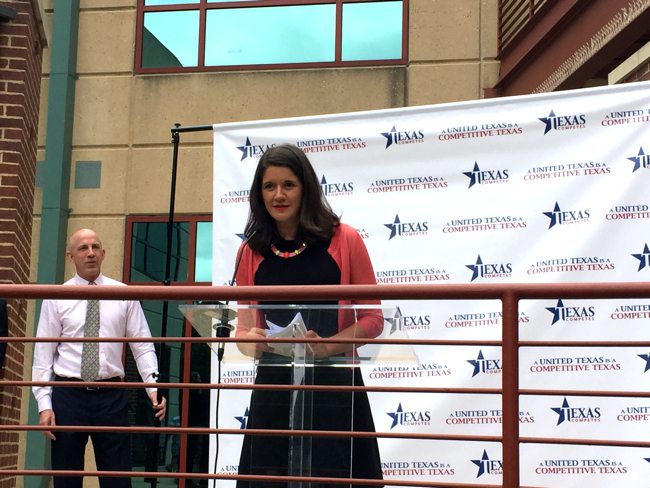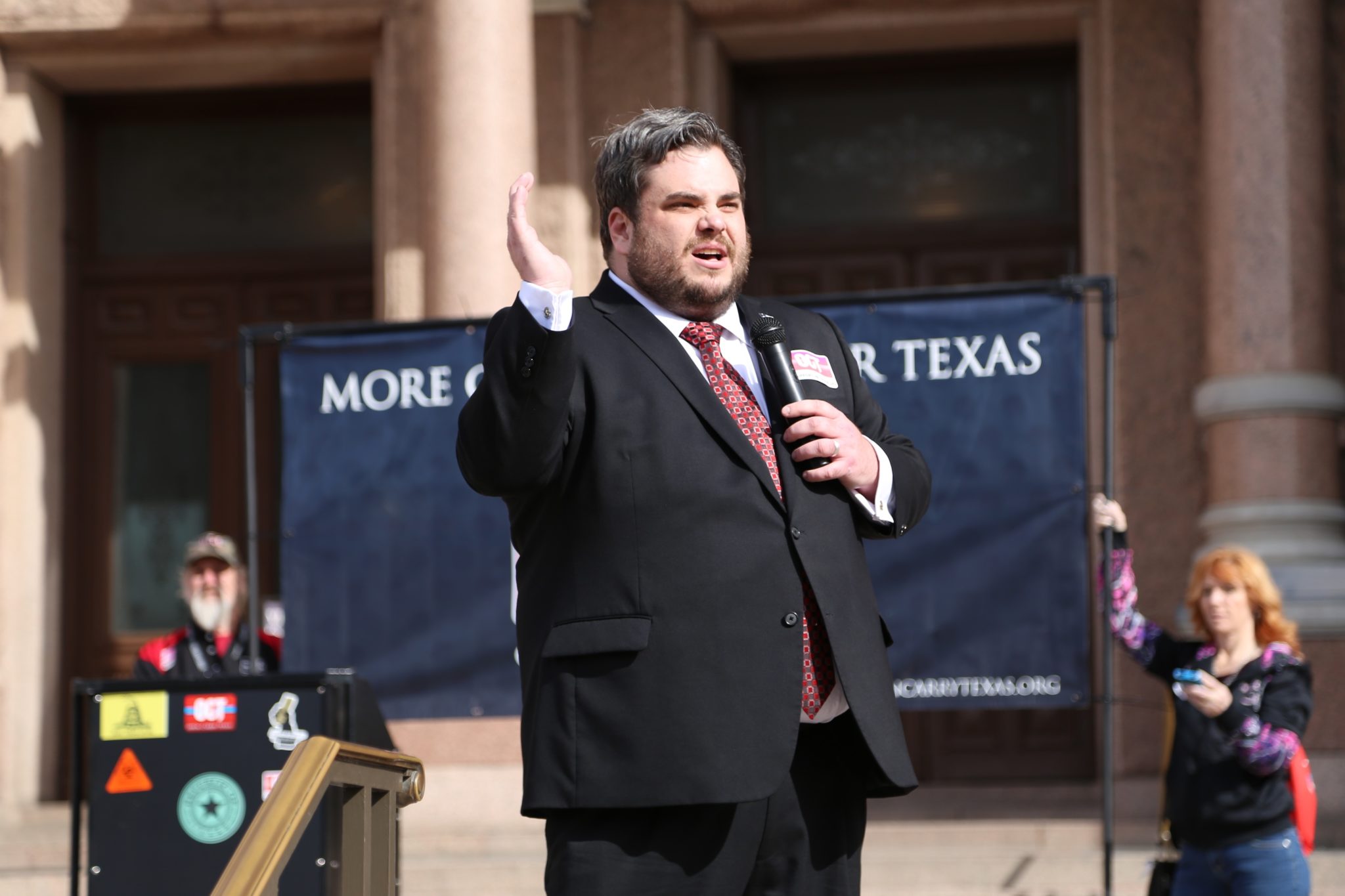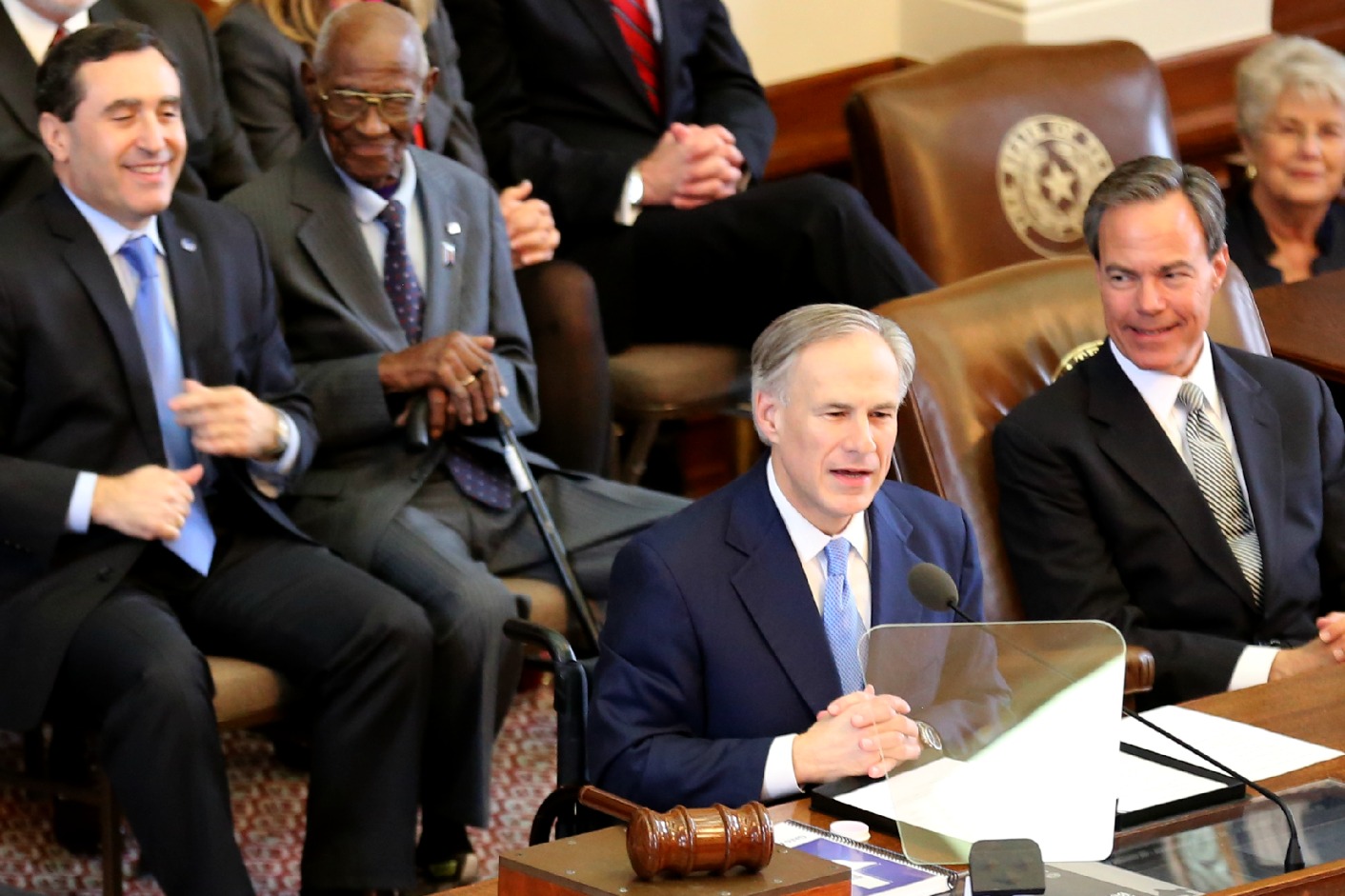
Texas Association of Business: ‘Religious Freedom’ Laws Would Be ‘Devastating’

Above: Bill Hammond, CEO of the Texas Association of Business, speaks during Tuesday's press conference at the Capitol.
The Texas Association of Business forcefully reiterated its opposition Tuesday to two proposed “religious freedom” amendments that critics say would enshrine a license to discriminate against LGBT people in the Texas Constitution.
But the powerful, conservative state chamber of commerce stopped short of coming out against several other anti-LGBT proposals.
At an unprecedented news conference in the speaker’s room outside the House chamber, Bill Hammond, CEO of the TAB, joined Democratic lawmakers and LGBT advocates in denouncing Senate Joint Resolution 10 and House Joint Resolution 125, by Sen. Donna Campbell (R-New Braunfels) and Rep. Matt Krause (R-Fort Worth), respectively.
Hammond and others—including Sen. Rodney Ellis (D-Houston) and Rep. Rafael Anchia (D-Dallas)—referenced business backlash over similar laws in Indiana and Arkansas. And they pointed to large Texas employers, such as American Airlines and Apple, that have joined the chorus against them.
“These amendments are bad for business,” Hammond said. “They would devastate economic development, tourism and the convention business. One has to look no further than Indiana to realize what a detriment this would be, and how hard it would be to sell Texas to the rest of the country. The Super Bowl, the Final Four, all those things would be at risk in Texas if this were to become part of our Constitution.”
The two amendments are among more than 20 anti-LGBT proposals in the 84th Legislature, including statutory bills that would similarly allow businesses to discriminate based on religious beliefs. But Hammond said the TAB board hasn’t voted whether to come out against those measures.
TAB President Chris Wallace told the Observer on Monday that he and Hammond plan to recommend that the board oppose bills making it illegal for transgender people to use restrooms according to how they identify.
“Business owners are going to have to be enforcers of this legislation, and we certainly do not want to place any more burdens on business than there already are,” Wallace said.
Wallace said other proposals to bar cities from enforcing LGBT-inclusive nondiscrimination ordinances may present a quandary for TAB. At least one of the bills, Senate Bill 343 by Sen. Don Huffines (R-Dallas), would also bar cities from regulating fracking, plastic bags and ride-sharing—a concept TAB supports.
Hammond said TAB likely will wait until other anti-LGBT legislation is scheduled for committee hearings to take an official position. None of the so-called religious freedom measures or bills targeting local LGBT protections has been scheduled for hearings as the session approaches its final 45 days.
“I think what happened in Indiana is hopefully a turning point,” said Chuck Smith, executive director of Equality Texas. “Every day that goes by without a negative bill having a hearing is a good thing.”
In others states, lawmakers have seized upon the controversy in Indiana and Arkansas to push for laws banning discrimination against LGBT people. But Smith acknowledged that’s unlikely in Texas, where anti-LGBT discrimination remains perfectly legal outside the handful of cities that have banned it.
“I don’t think it creates an opening necessarily in this session to be able to pass a statewide nondiscrimination law,” Smith said.


